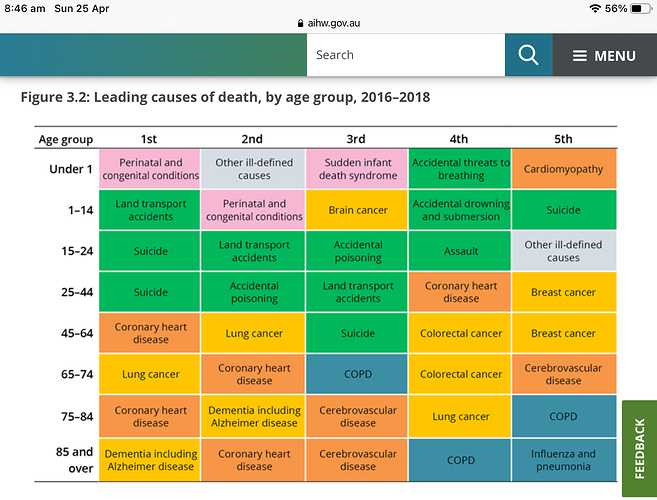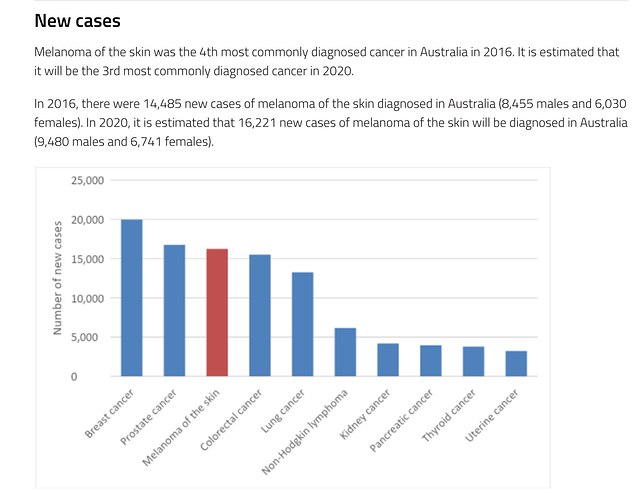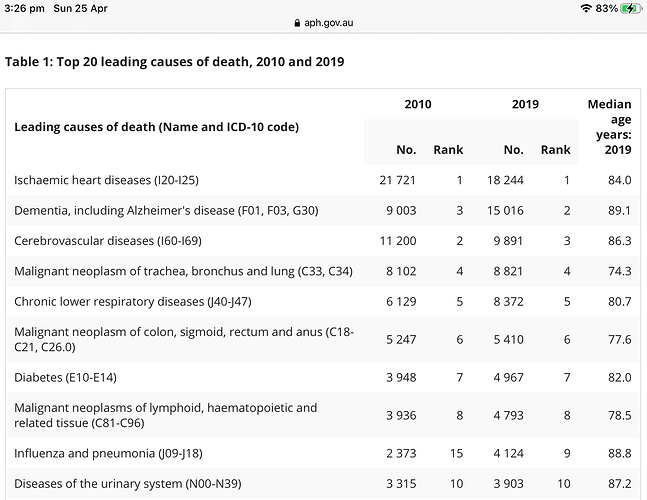It may also be genetic but only expressed when both parents had the fault, damage by radiation of parents genes that is then passed onto their children, damage to their childrens genes during their lifetime among other reasons, there are many factors that can spark cancer growth. Lymphomas and Myelomas have become more prevalent diseases in the older people due largely to the increasing lifespan of our populations, but they have always existed. Osteoporosis was a very unfamiliar disease only a few generations ago as many people died before the effects of it became apparent, now it is much more prevalent because it takes time to develop to a bad stage and people are living longer so it appears more frequently.
My Wife’s and my families have a history of Melanomas, Bowel, Kidney, Liver, Prostate, Breast cancer going back at least 3 generations, probably further when causes of death link to wasting, bowel blockages etc etc etc. Just modern medicine can identify why much more accurately than in the past. Medical Treatment has improved so much that what previously were untreatable diseases have become very survivable nowadays thanks to modern medical practices and treatment.
From https://www.verywellhealth.com/longevity-throughout-history-2224054
" From the 1800s to Today
From the 1500s onward, till around the year 1800, life expectancy throughout Europe hovered between 30 and 40 years of age.
Since the early 1800s, Finch writes that life expectancy at birth has doubled in a period of only 10 or so generations. Improved health care, sanitation, immunizations, access to clean running water, and better nutrition are all credited with the massive increase.
Though it’s hard to imagine, doctors only began regularly washing their hands before surgery in the mid-1800s. A better understanding of hygiene and the transmission of microbes has since contributed substantially to public health.
Disease was still common, however, and impacted life expectancy. Parasites, typhoid, and infections like rheumatic fever and scarlet fever were all common during the 1800s.
Even as recently as 1921, countries like Canada still had an infant mortality rate of about 10%, meaning 1 out of every 10 babies did not survive. According to Statistics Canada, this meant a life expectancy or average survival rate in that country that was higher at age 1 than at birth—a condition that persisted right until the early 1980s.
Today most industrialized countries boast life expectancy figures of more than 75 years , according to comparisons compiled by the Central Intelligence Agency.".


